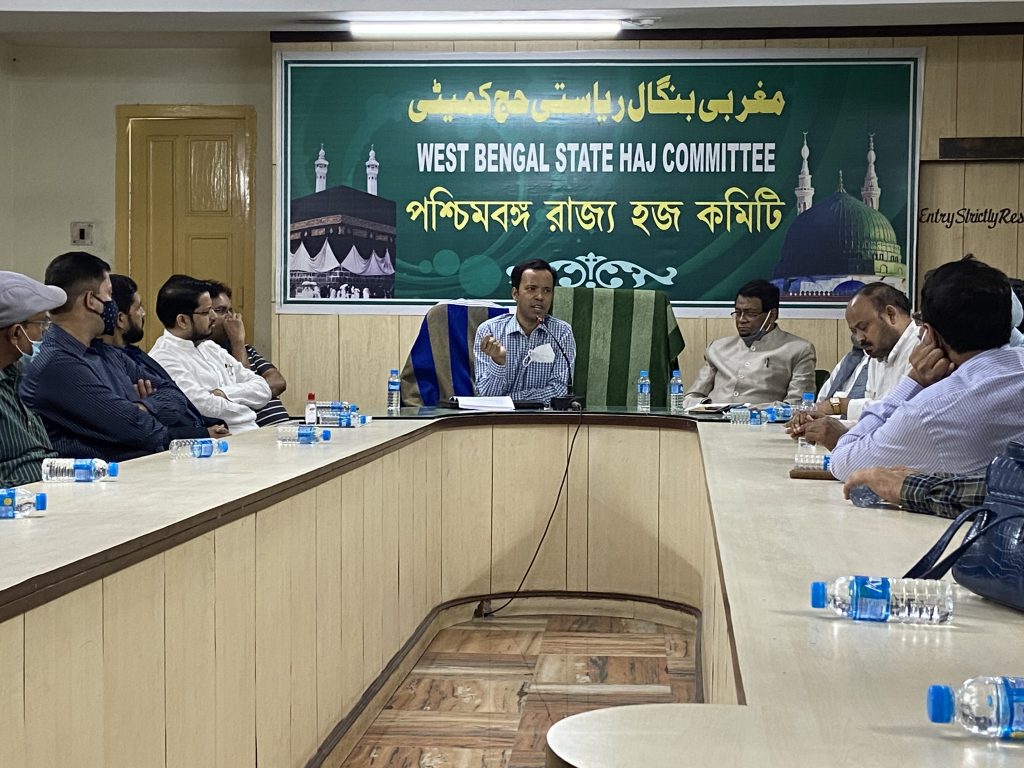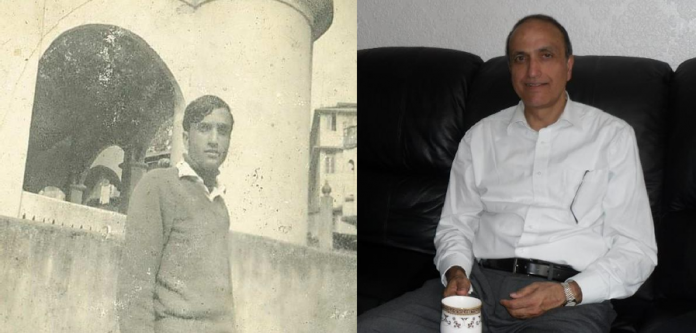By Rafat Ali
Professor Ataullah Siddiqui passed away on the night of 8 November 2020 aged 66, after battling cancer courageously for six months, at his home in Birmingham, UK. His sad demise has brought about a huge loss to not only the Muslim world but the world at large – to all concerned about a meaningful dialogue amongst communities whose relationships are so much mired in past memories of distrust and conflict. Tributes paying their last respects and condolences to the family members have been pouring in from all over the world. Some have written that with his passing ‘the world of British Muslim Studies [has] lost one of its most thoughtful founding scholars’ and described him ‘as an academic who did not seek distinction or accolades, but who selflessly and reliably supported the work of others’, as ‘someone who embodied the spirit of self –sacrificial and humble service – and whose legacy needs to be kept alive’. Another well-known scholar in his obituary describes him as ‘an efficient educator whose contribution to the Muslim community worldwide has been huge’, as a ‘credible scholarly, patient, insightful, caring, very respectful to women, humble and hardworking man’, as a gentleman in the true sense of the word: kind, compassionate, considerate, who never had a bad word to say about anyone’, ‘an immensely kind, gentle, humble, upright, deep and a wonderful human being’ and a ‘great soul’.
In a memorial meeting conducted over Zoom yesterday, a person who attended his funeral described the testimony of the common note of most of the attendees about him being one of the best role models of a good da’i. In an age where we are flooded with information and yet are deprived of the ‘reality’; where relations only tend to gravitate in one direction and any form of disagreement is intolerable, leading to the disintegration of trust and even society at large, in an almost civil war-like situation, Professor Siddiqui was nothing less than a beacon of hope for the future of communities. I should not thus fail to share some of his own views on the three basic beliefs that constitute the core of the Islamic faith which all would do good to know.
First is the concept of the Oneness of God and devotion to it alone. Nothing should stand in the way of sincere loyalty, honour and pursuit of this goal. God alone becomes the centre of all activity and devotion, and any deviation from this goal towards false values – which may include the love and adoration of wealth, power and prestige – becomes shirk and idolatry.
Corresponding to this is the second belief that God is not a passive God but involved in the world and provides constant guidance to human beings. God has not only provided human beings with intellect to understand nature and discover the world around them but also revealed to them the purpose of human creation and responsibility in the world so that they may wonder, reflect and acknowledge the beauty and worth of being part of Creation. This has been done through individuals gifted with outstanding character and conviction. They are the prophets, the final such individual being the prophet Muhammad (may the peace and blessings of God be upon him). The prophets have not been sent to human beings as fallen and hopeless. In fact, human beings are made the crown of God’s creation, and given the status of vicegerents on earth with intellect, free will and ability to communicate through speech.

Thirdly, the human body, the material part which will perish one day also houses the spirit which continues its journey even after the body perishes. Muslims believe that all good and bad deeds make an impact on the individual’s soul, which then carries its deeds with it and is accountable to its Creator.
These three concepts; of the Oneness of God, the office of prophethood and the accountability of the soul – tawhid, risalah, akhirah form the crux of the Muslim faith.
Professor Siddiqui strived to live his entire life in complete accordance with these beliefs constantly. He always reminded us that ‘good intentions change acts of habit adah into acts of worship ibadah’. Every aspect of his own life – through which he touched the hearts of thousands all over the world – including his livelihood, his love and care for all, and particularly his contribution to the field of his research on building trust and relations where it is fast disappearing between communities and individuals that already know each other – were performed with the pure motive of carrying out God’s commandment. He was a perfect da’i in the sense that he did not wish to impose his views on anyone else but make it, to put it in his own words – ‘dual tracked, multi-focal and multi-layered’. ‘We are in reality, living a “hyphenated” coexistence where multiple communities are at different stages of engagement, with their own pasts and carrying their own memories’.
For those who may have not known him personally, he was not only one of Britain’s, but Europe’s, and even the world’s leading scholars on Islam, particularly in the field of religious pluralism and interfaith dialogue. His father, Maulana Md. Sibghatullah Siddiqui and mother Zafrun Nisa, hailed from the Ballia district of Uttar Pradesh and migrated to Kalimpong quite early in their life. Maulana Sibghatullah Siddiqui himself was an epitome of humility and self–sacrificial service who dedicated his entire life to the welfare of the Muslim community of Kalimpong, guiding them spiritually and keeping them united and free from all forms of sectarian factionalism that plagues communities today. Professor Ataullah Siddiqui began his humble educational career in the hill town of Kalimpong and from a very early age was actively involved in initiating the translation of the writings of key Islamic thinkers of the time into the Nepali language with the help of some of the best scholars of the region.

In 1982 he left for the UK to join the Islamic Foundation as a Research Fellow, an organization that he remained loyally associated with till the end of his life, contributing significantly to its academic life as well that of the British Muslim community. He completed his PhD in Theology in the subject ‘Christian Muslim Dialogue in the Twentieth Century’ from the University of Birmingham. He played a pivotal role in the establishment of its sister institute, the Markfield Institute of Higher Education, from conceptualizing and designing its curriculum for doctoral, postgraduate and undergraduate degree programs, to its administration as its Director from 2001- 2008. He taught in the Institute as Reader, and later Professor, of Religious Pluralism and Inter-Faith Relations. He also held several honorary posts as Visiting Fellow and Visiting Professor at the University of Leicester, York St. John’s University, Gloucestershire University to name only a few.
Among his chief achievements during this phase was becoming the founder President and Vice-Chair of the ‘Christian Muslim Forum’ launched by the then Archbishop of Canterbury Rowan Williams and was also the founder member of the Leicester Council of Faiths. He published several important books on the subject and contributed regularly to some of the most prestigious journals internationally.
In 2007 he was appointed by the British Government to submit a report on the state, and recommendations towards improvement, of the study of Islam as an academic subject in Universities throughout Britain. At a time when the relationship between communities are growing more and more estranged because their memories are vested with perceptions as well as misperceptions, concordances as well as conflicts, he was found the most suitable person to carry on this task of building bridges. The report titled, ‘Islam at Universities in England: Meeting the Needs and Investing in the Future’, also known as the Siddiqui Report, was the fifth of its kind to be tabled in the British Parliament, preceded by the Reay Report (1909), Scarbrough Report (1947), Hayter Report (1961) and the Parker Report (1986); all four are significant to students interested in the field of Orientalist Studies. In the wake of catastrophic events like 9/11 and 7/7, the Siddiqui Report was one with great responsibility and a genuine vision for a pluralist society.
Now that we have lost this great and humble soul and deep mind, it is for all people committed to a vision of a future built on peace and coexistence, tolerance and respect for all communities and most important of all, committed to dialogue, not diatribe, to carry on his spiritual legacy.
Let us make our own humble supplication and petition to the Almighty to keep alive the memory of this gentle soul in our hearts, give solace to his family in the UK and in India, and raise his ranks in Jannah.
The author can be reached at rafat.ali@


